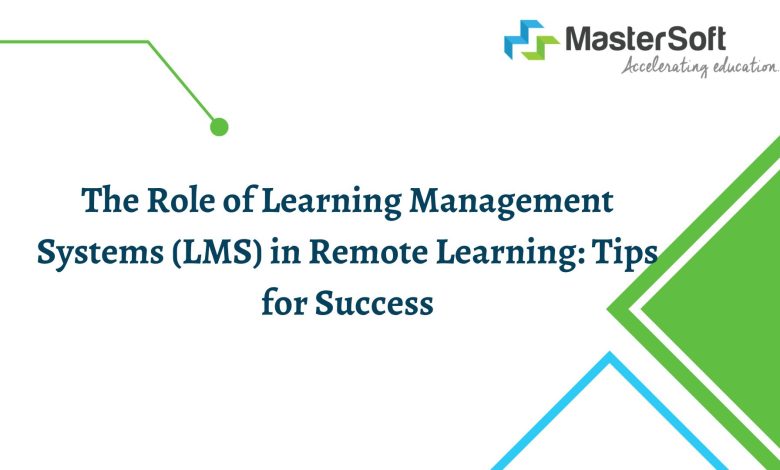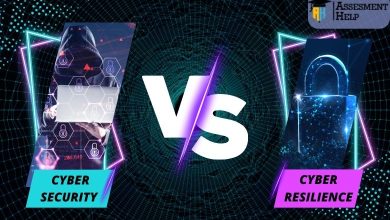The Role of Learning Management Systems (LMS) in Remote Learning: Tips for Success

In recent years, the educational landscape has seen a dramatic shift, with remote learning becoming more prevalent than ever. The advent of Learning Management Systems (LMS) has played a pivotal role in this transformation, empowering educators and learners to engage in effective online education. In this comprehensive guide, we’ll delve into the critical role of LMS Learning Management Systems in remote learning and provide valuable tips for success. Whether you’re an educator, student, or part of an organization, these insights will help you harness the full potential of LMS Learning Management Systems in the remote learning environment.
Chapter 1: Understanding the Significance of LMS Learning Management Systems in Remote Learning
Before we explore the tips for success, let’s grasp the importance of Learning Management Systems in remote learning.
What is Remote Learning?
Remote learning, also known as online learning, e-learning, or distance education, involves the use of technology to deliver educational content and instruction to learners who are geographically separated from their instructors. This mode of learning has gained prominence, particularly due to its accessibility and flexibility.
The Role of LMS Learning Management Systems in Remote Learning
- Central Hub for Learning: LMS Learning Management Systems serves as a centralized platform where instructors can upload course materials, assignments, and assessments, making it easy for students to access everything in one place.
- Communication and Collaboration: LMS Learning Management Systems offers various communication tools such as discussion boards, chat, and email, enabling students to engage with instructors and peers.
- Progress Tracking: LMS Learning Management Systems provide features for tracking student progress and performance, ensuring that learners receive the support they need.
Chapter 2: Tips for Successful Remote Learning with LMS Learning Management Systems
Now that we understand the role of LMS in remote learning, let’s delve into the practical tips for making your remote learning experience a success.
1. Choose the Right LMS Learning Management Systems Platform
Selecting the most suitable LMS Learning Management Systems platform is a critical step. Consider factors such as user-friendliness, customization options, integration capabilities, support, and security.
2. Establish a Dedicated Learning Environment
Create a designated and distraction-free learning space. This will help you stay focused and organized during your remote learning sessions.
3. Set Clear Goals and Expectations
Define your learning goals and expectations at the outset. Having a clear sense of purpose will keep you motivated throughout your remote learning journey.
4. Effective Time Management
Create a schedule that allows for structured learning. Allocate specific time slots for study, assignments, and breaks to maintain a healthy work-life balance.
5. Actively Engage in Discussions
Participate in online discussions and forums provided by the LMS Learning Management Systems. Active engagement with peers and instructors fosters a sense of community and enhances your learning experience.
6. Utilize Multimedia Resources
Take advantage of the multimedia resources available through the LMS Learning Management Systems, such as video lectures and interactive content. These resources can enhance comprehension and retention.
7. Seek Support and Clarification
Don’t hesitate to reach out to instructors or support staff if you have questions or need clarification. LMS platforms often have built-in communication tools for this purpose.
8. Embrace Self-Paced Learning
Remote learning offers the flexibility to learn at your own pace. Take advantage of this and tailor your learning journey to suit your individual style.
9. Stay Organized
Use the organizational features of the LMS to keep track of assignments, deadlines, and course materials. Being organized is key to success in remote learning.
10. Seek Feedback
Request feedback on your performance and progress. Constructive feedback from instructors can help you improve and achieve your learning goals.
Chapter 3: Best Practices for Educators in Remote Learning
Educators play a crucial role in the success of remote learning. Here are some best practices for instructors and facilitators:
1. Provide Clear Instructions
Clearly communicate expectations, instructions, and course objectives to students. Clarity is essential in remote learning environments.
2. Foster Engagement
Use the collaboration and communication tools in the LMS to encourage student participation. Engaged students are more likely to succeed.
3. Offer Support
Be accessible to students and provide support through online office hours, chat, or email. Timely responses to queries contribute to a positive learning experience.
4. Embrace Multimedia
Incorporate multimedia elements, such as videos and interactive content, to make your lessons engaging and visually appealing.
5. Encourage Self-Paced Learning
Recognize that students have varying learning paces. Encourage self-paced learning, allowing students to progress at their own speed.
6. Regular Assessments
Use the LMS to create and grade assessments regularly. Timely feedback on assignments helps students track their progress and improve.
7. Adapt to Student Needs
Be flexible and open to adjustments based on student feedback. Understanding individual needs is vital in remote learning.
Chapter 4: The Future of Remote Learning with LMS
The future of remote learning is bright, with continuous advancements in technology. Here are some trends to watch for:
1. Mobile Learning
Remote learning through mobile devices is on the rise. LMS platforms will continue to prioritize mobile compatibility for convenient access.
2. Artificial Intelligence (AI)
AI-driven features will provide personalized learning experiences, including tailored content recommendations and automated grading.
3. Virtual Reality (VR) and Augmented Reality (AR)
Immersive technologies like VR and AR will create interactive and engaging learning experiences for remote learners.
4. Enhanced Security
As remote learning grows, so does the need for robust security measures to protect sensitive student and institutional data.
Chapter 5: Conclusion
In conclusion, the role of LMS Learning Management Systems in remote learning is significant, offering both students and educators an efficient and effective way to engage in education. By following the tips and best practices outlined in this guide, you can maximize your remote learning experience. As technology continues to shape the future of education, the opportunities for enhancing remote learning with LMS will only increase. So, embrace these tips, stay informed about emerging trends, and unlock the full potential of remote learning with LMS Learning Management Systems.



